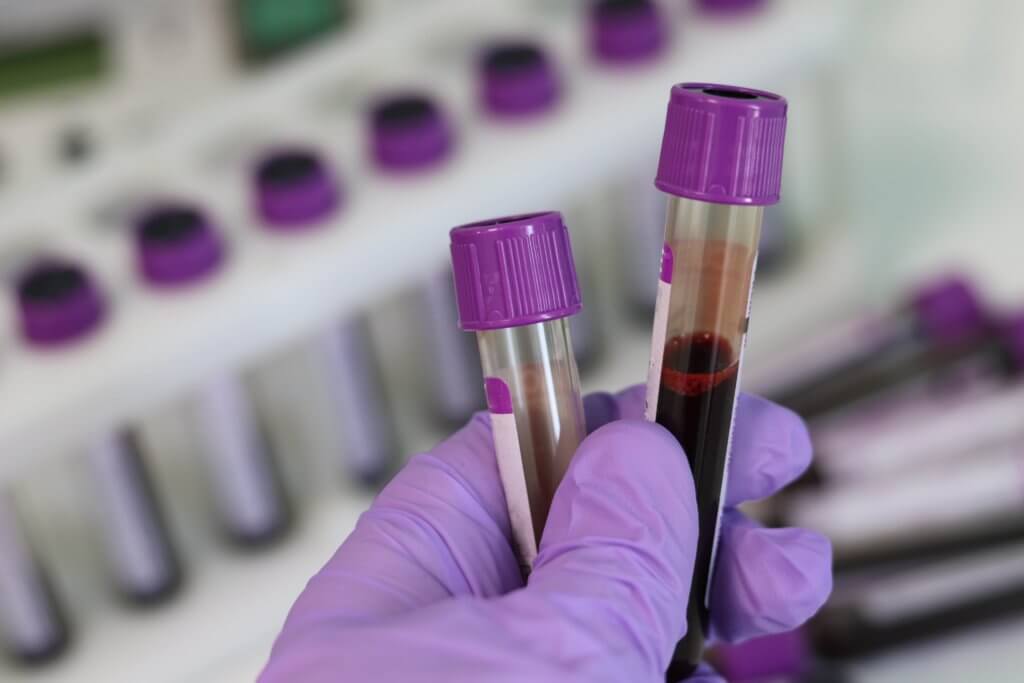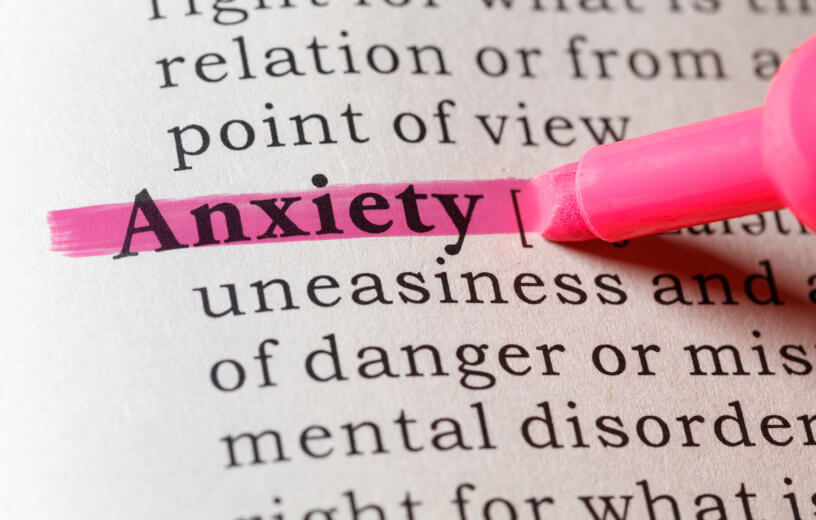INDIANAPOLIS — Anxiety is a feeling that’s hard to describe, let alone objectively measure. In many cases, anxious feelings creep up on people before they have a chance to recognize what’s happening. Now, however, scientists at Indiana University have successfully developed a blood test capable of measuring anxiety.
The test analyzes biomarkers that can objectively determine someone’s risk of developing anxiety, the severity of their current anxiety, and which therapies would probably treat their anxiety in the most effective manner. Researchers have already validated the new test and they’re currently developing it for wider use by physicians at MindX Sciences.
“Many people are suffering from anxiety, which can be very disabling and interfere with daily life,” says professor of psychiatry Alexander Niculescu, MD, PhD, in a university release. “The current approach is to talk to people about how they feel to see if they could be on medications, but some medications can be addictive and create more problems. We wanted to see if our approach to identify blood biomarkers could help us match people to existing medications that will work better and could be a non-addictive choice.”
Earlier research conducted by Prof. Niculescu has helped develop blood tests for pain, depression, bipolar disorder, and post-traumatic stress disorder. This latest study followed a similar approach for anxiety. Researchers assessed three independent groups: discovery, validation, and testing. Participants underwent a blood test every three to six months, or whenever they experienced a new psychiatric hospitalization.
The test matches people with the best treatments for their condition
By examining RNA biomarkers present in the blood, researchers were able to identify a patient’s current state of anxiety. Moreover, the process even “matched” patients up with specific medications and nutraceuticals, according to how effective different options may be for them according to their personal biology.
“In addition to medications, there are other methods to treat anxiety, such as cognitive behavioral therapy or lifestyle changes,” Prof. Niculescu adds. “But having something objective like this where we can know what someone’s current state is as well as their future risk and what treatment options match their profile is very powerful in helping people.”

An individual’s biomarkers can change over time, researchers note. Prof. Niculescu says the test can help evaluate a person’s risk of developing higher levels of anxiety in the future, as well as how other factors may impact that anxiety, such as hormonal changes.
“There are people who have anxiety and it is not properly diagnosed, then they have panic attacks, but think they’re having a heart attack and up in the ER with all sorts of physical symptoms,” Prof. Niculescu notes. “If we can know that earlier, then we can hopefully avoid this pain and suffering and treat them earlier with something that matches their profile.”
This could lead to personalized medications
In conclusion, Prof. Niculescu believes this new test could potentially work in combination with other blood tests his research has helped create to produce a more comprehensive view of a patient’s overall mental health and risk of mental health problems in the future. The test could also contribute to the development of new treatments for anxiety that focus on individual biomarkers.
“This is something that could be a panel test as part of a patient’s regular wellness visits to evaluate their mental health over time and prevent any future distress,” Prof. Niculescu concludes. “Prevention is better in the long run, so our goal is to be able to provide a comprehensive report for patients and their physicians using simply one tube of blood.”
The findings appear in the journal Molecular Psychiatry.

